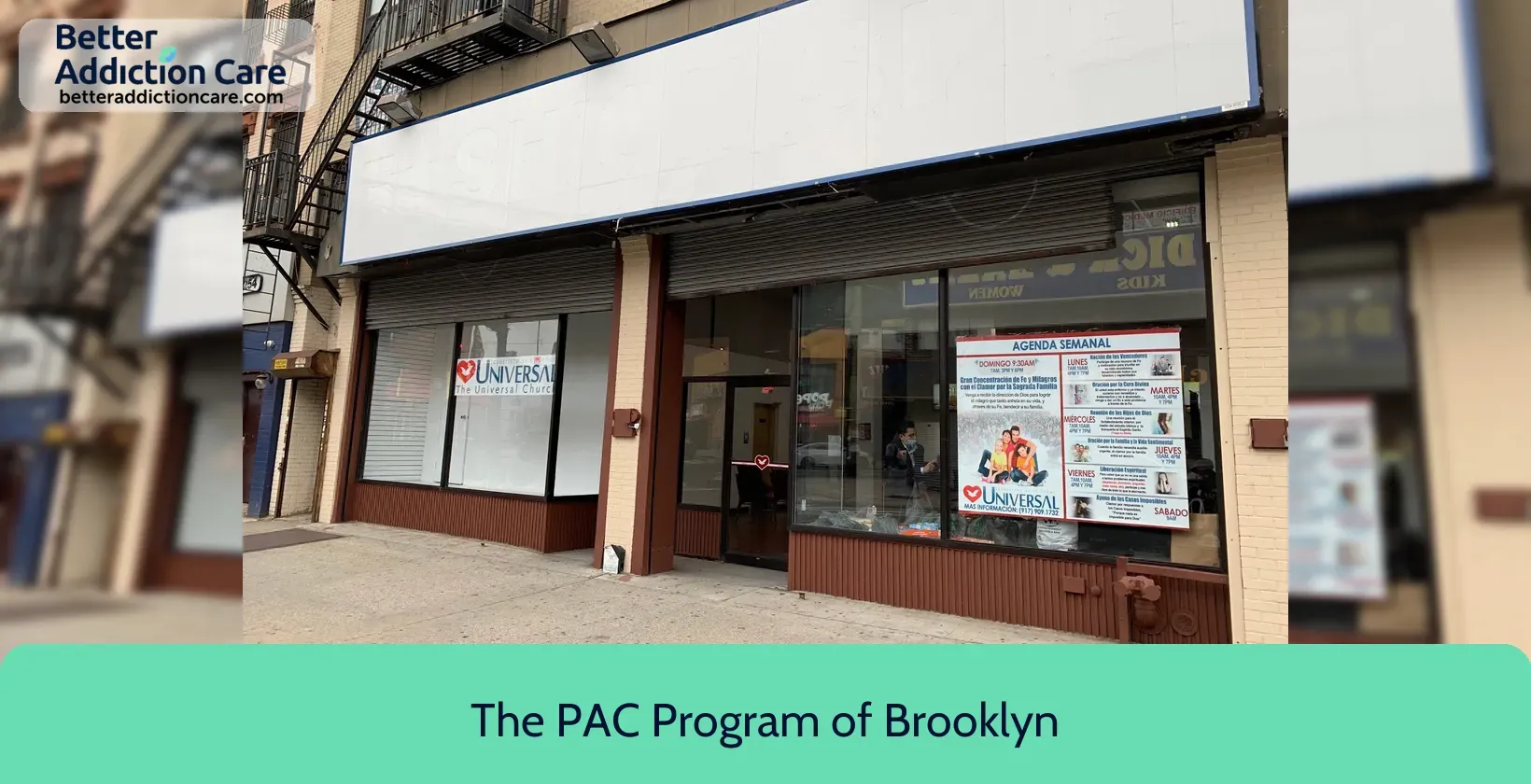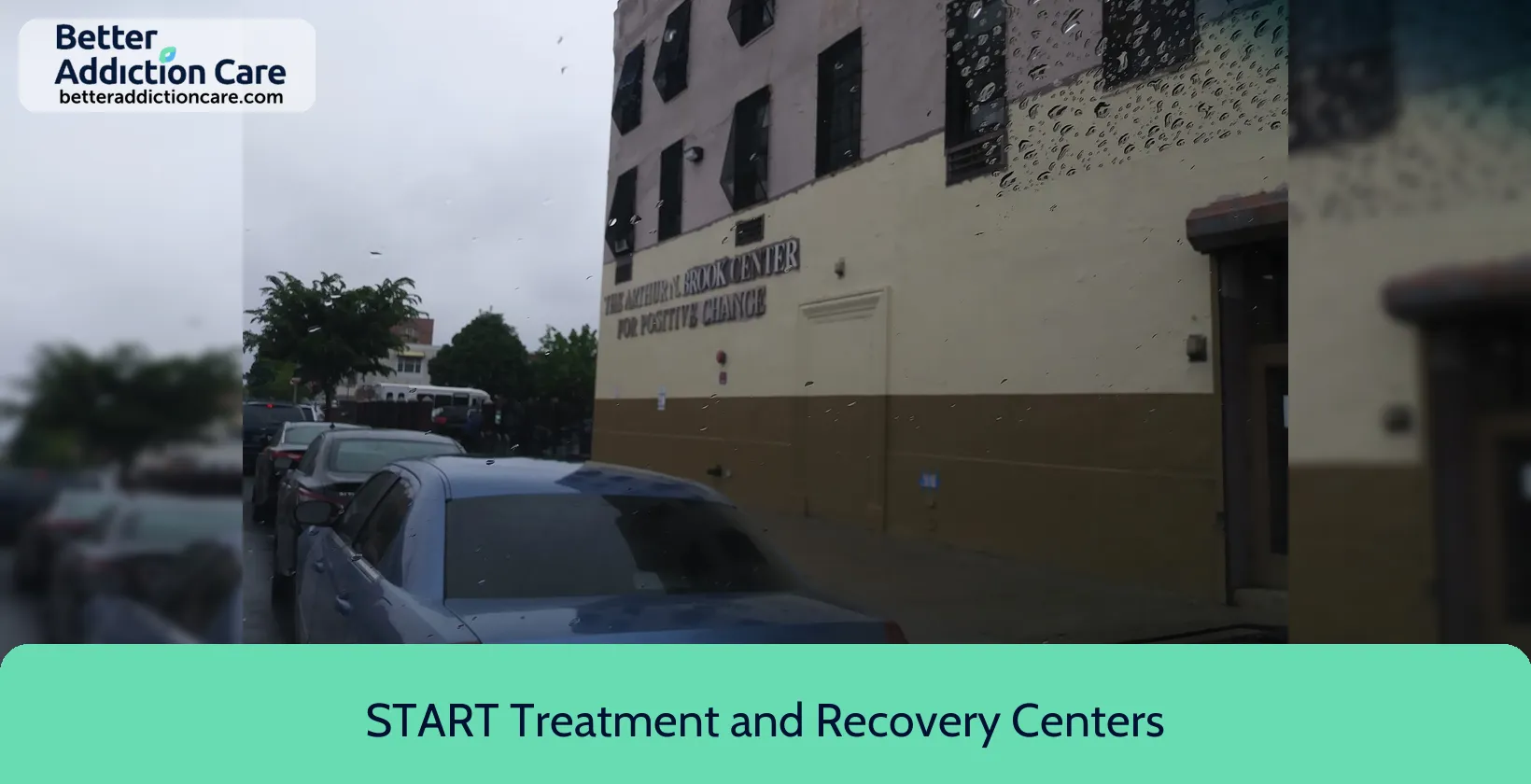Pesach Tikvah Hope Development - Pesach Tikvah Family Services Center

Overview
Pesach Tikvah Hope Development - Pesach Tikvah Family Services Center is a mental health treatment center for people seeking treatment near Kings County. As part of their treatment modalities for recovery, Pesach Tikvah Hope Development - Pesach Tikvah Family Services Center provides couples/family therapy, group counseling, and cognitive behavioral therapy during treatment. Pesach Tikvah Hope Development - Pesach Tikvah Family Services Center is located in Brooklyn, New York, accepting cash or self-payment for treatment.
Pesach Tikvah Hope Development - Pesach Tikvah Family Services Center at a Glance
Payment Options
- Cash or self-payment
- Medicaid
- Medicare
- State-financed health insurance plan other than Medicaid
- Private health insurance
Assessments
- Screening for tobacco use
- Comprehensive mental health assessment
- Comprehensive substance use assessment
Age Groups
- Seniors or older adults
- Young adults
- Children/adolescents
- Adults
- Seniors
Ancillary Services
- Case management service
- Chronic disease/illness management
- Court-ordered outpatient treatment
- Family psychoeducation
- Illness management and recovery
Highlights About Pesach Tikvah Hope Development - Pesach Tikvah Family Services Center
6.71/10
With an overall rating of 6.71/10, this facility has following balanced range of services. Alcohol Rehabilitation: 8.00/10, Drug Rehab and Detox: 6.00/10, Insurance and Payments: 6.00/10, Treatment Options: 6.85/10.-
Alcohol Rehabilitation 8.00
-
Treatment Options 6.85
-
Drug Rehab and Detox 6.00
-
Insurance and Payments 6.00
Treatment At Pesach Tikvah Hope Development - Pesach Tikvah Family Services Center
Treatment Conditions
- Alcoholism
- Mental health treatment
- Substance use treatment
- Co-occurring Disorders
Care Levels
- Outpatient
Treatment Modalities
- Couples/family therapy
- Group counseling
- Cognitive behavioral therapy
- Dialectical behavior therapy
- Integrated Mental and Substance Use Disorder treatment
Ancillary Services
Languages
- Spanish
- Other languages (excluding Spanish)
- Hebrew
- Russian
Special Programs
- Clients with co-occurring mental and substance use disorders
- Veterans
- Active duty military
- Members of military families
- Criminal justice (other than DUI/DWI)/Forensic clients
Get Help Now
Common Questions About Pesach Tikvah Hope Development - Pesach Tikvah Family Services Center
Contact Information
Other Facilities in Brooklyn

6.80

7.40

7.49

6.72

6.82

7.60

7.25

6.99
DISCLAIMER: The facility name, logo and brand are the property and registered trademarks of START Treatment and Recovery Centers - East New York, and are being used for identification and informational purposes only. Use of these names, logos and brands shall not imply endorsement. BetterAddictionCare.com is not affiliated with or sponsored by START Treatment and Recovery Centers - East New York.
